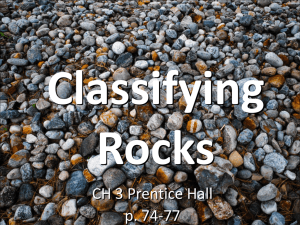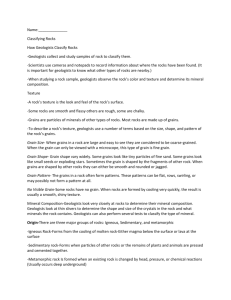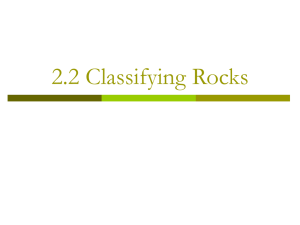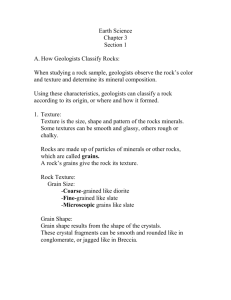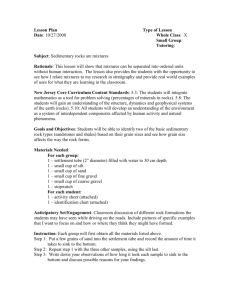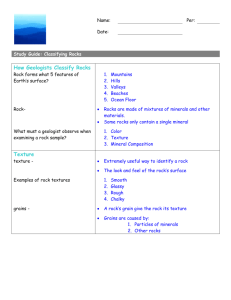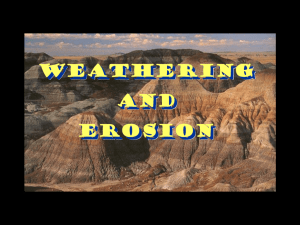Chapter 2 Lesson 2: Classifying Rocks
advertisement
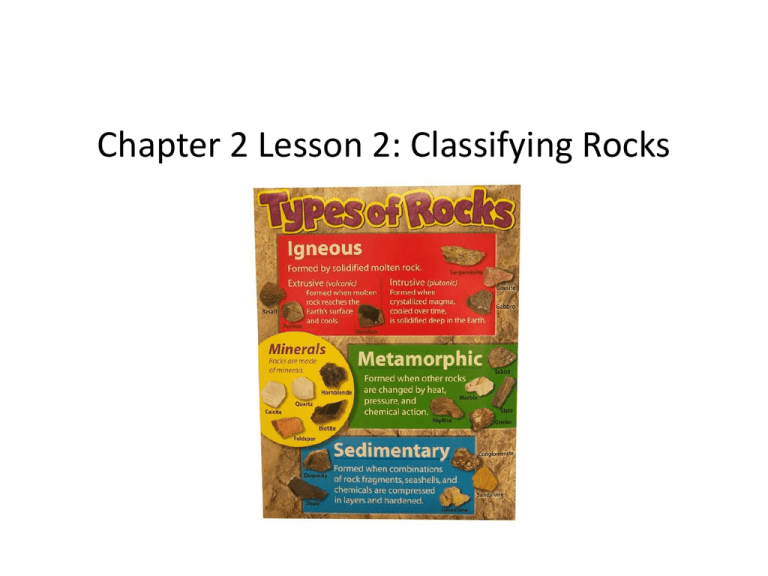
Chapter 2 Lesson 2: Classifying Rocks • 1. What characteristic do geologists observe when studying a rock sample? Geologists observe the rock’s mineral composition, color, and texture. 2. Name the three major rock groups and describe how each forms. Igneous- Forms from the cooling of magma or lava. Sedimentary- Forms when small particles of rocks or remains of plants and animals are pressed and cemented together. Metamorphic- Forms when a rock is changed by heat or pressure, or by chemical reactions. 3. A material found in magma that is formed from the elements oxygen and silicon. _____________________________________ silica 4. Generally a light colored rock that has high silica content._____________________ Granite 5. Generally a dark colored rock with relatively low silica content.__________________ basalt 6. The 20 minerals that make up most of the rocks of Earth’s crust are known as ___________________________________ Rock -forming minerals 7. What is texture? The look and feel of a rocks surface. 8. To describe the texture of a rock, geologists size use terms that are based on______________, shape _______________, and, Pattern of the grains ____________________________________. 9. Rocks with grains that are large and easy to see 9. Fine grain or coarse grain 10. Grains that are so small they 10. Fine grain or coarse grain can only be seen by a microscope 11. Grains can lie in a pattern of 11. Nonbanded or banded flat layers or can form swirls of colored bands 12. Have grains that do not lie in 12. Nonbanded or banded any visible pattern 13. Rounded grain and jagged grain describe ______________ grain shape the way that a rock formed. 14. A rock’s origin is __________________________
